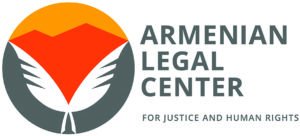 Amidst the backdrop of the 44-day war in 2020, which engulfed the region of Artsakh/Nagorno-Karabakh in a maelstrom of conflict and bloodshed, grave accusations of war crimes and human rights transgressions have emerged, implicating Azerbaijani officials in acts of egregious violence. These allegations, stemming from the crucible of warfare, shed light on atrocities perpetrated against Armenian prisoners of war (POWs) amidst the chaos of battle.
Amidst the backdrop of the 44-day war in 2020, which engulfed the region of Artsakh/Nagorno-Karabakh in a maelstrom of conflict and bloodshed, grave accusations of war crimes and human rights transgressions have emerged, implicating Azerbaijani officials in acts of egregious violence. These allegations, stemming from the crucible of warfare, shed light on atrocities perpetrated against Armenian prisoners of war (POWs) amidst the chaos of battle.
The International and Comparative Law Center of Armenia, under the auspices of the Armenian Legal Center for Justice and Human Rights, is submitting seven cases under the Global Magnitsky Human Rights Accountability Act against over 40 senior Azerbaijani officials for war crimes and human rights abuses. The Global Magnitsky Human Rights Accountability Act, which is a landmark piece of legislation enacted by the United States Congress in 2016, allows the U.S. government to impose sanctions on individuals and entities anywhere in the world responsible for committing or being complicit in serious human rights abuses or acts of significant corruption.
In the aftermath of the conflict, despite disavowals from the Azerbaijani government, investigations by independent media outlets such as the BBC and Bellingcat verified the authenticity of harrowing videos depicting the summary executions of a 73-year-old civilian and a 25-year-old volunteer with the NKR Defense Army. These individuals were captured and slain by Azerbaijani military personnel, casting a stark shadow over the theater of war.
The broader canvas of the conflict reveals a distressing pattern of alleged violations against civilians and POWs. Propagated through various social media platforms, numerous videos documenting extrajudicial killings of civilians circulated widely. Furthermore, reports suggest that several ethnic Armenian civilians met their demise while in Azerbaijani military custody, with many POWs reportedly subjected to torture and extrajudicial executions.
In the face of mounting evidence, Azerbaijani authorities have thus far failed to proactively address these grave human rights violations or to hold the alleged perpetrators accountable. As such, the clarion call for action has gained resonance, with impassioned appeals for the imposition of sanctions under international human rights frameworks, including the Global Magnitsky Human Rights Accountability Act.
Of particular concern is the involvement of high-ranking military officials in these reprehensible acts, raising questions about the doctrine of command responsibility and the issue of accountability within the Azerbaijani armed forces.
Indeed, the allegations extend to the Azerbaijani Naval Special Forces (NSF), accused of perpetrating extrajudicial executions, torture and ill-treatment against both civilians and members of the NKR Defense Army during the hostilities. Noteworthy instances, such as the 2016 infiltration into Talish village and the grisly beheading of an elderly civilian during the 2020 conflict, underscore the gravity of the accusations leveled against the NSF.
In a parallel submission, focus is directed towards the events surrounding the occupation of Zangilan (Kovsakan) by Azerbaijan in Nagorno-Karabakh, where Armenian soldiers faced capture, torture and execution at the hands of Azerbaijani forces. Despite compelling evidence of mistreatment and torture endured by Armenian POWs, Azerbaijani authorities have failed to safeguard the rights of detainees and to investigate reported abuses.
Furthermore, the spotlight falls upon judges and prosecutors tasked with overseeing legal proceedings against Armenian POWs, who preside over a system of arbitrary detention and prosecution. Following the capture of 62 Armenian soldiers in December 2020, Azerbaijani civil courts have wielded charges, including terrorism and illegal border crossing, in a manner deemed fabricated and violative of fundamental due process rights.
The call for sanctions under the Global Magnitsky Human Rights Accountability Act echoes a resolute commitment to justice, aiming to hold Azerbaijani officials accountable for their complicity in these violations. These allegations underscore the imperative of impartial investigation and accountability mechanisms to address the egregious violations of POW rights and to ensure the realization of justice for victims.


Be the first to comment